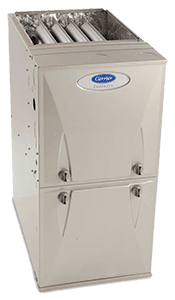
The heating system is a vital piece of equipment that helps keep your house comfortably warm in the chilly winter months. However, these systems use too much energy, and thus efficiency is an important consideration when buying the unit. Weigh your options and choose a heating system that uses less energy and lowers carbon footprint without compromising comfort. Here are some of the most energy-efficient heating systems that you can consider.
1. Geothermal Heat Pumps
The most efficient way to heat your house is by using the ground source or geothermal heat pump. This system utilizes free solar energy present under the ground to produce efficient heating. It contains series of pipes buried under the ground. Geothermal heat pumps work by collecting heat trapped under the ground or in water. Keep in mind that the ground surface maintains a temperature between 45 degrees and 60 degrees throughout the year. The heating system contains water or a refrigerant that circulates through loops to tap into the renewable solar energy stored in the ground. It then concentrates the collected heat and distributes it throughout the house. Geothermal heating systems that use water are more efficient since water transfers heat 200 times better than air.
This heating solution is also very environmentally friendly, and it helps reduce the demand for electric utilities. Unlike other heating systems, the unit collects already present energy without burning fossil fuel or using electricity. The geothermal heat pumps have an efficiency rating of about 35 EER and more than 45 EER. This system also operates quietly, has clean air, and lasts much longer. The main drawbacks of this option are high upfront and repair costs.
2. Mini Splits Heat Pumps
The ductless, mini-split, or air source system is another excellent option, especially for milder climates. This heating solution has an outdoor unit and contains a refrigerant that captures hot air and circulates it throughout the house. The system doesn’t create heat but rather collects it from the outside air, making it very efficient. This heating system also has an inverter technology that adjusts the heating capacity to avoid overheating the house. Mini-split heat pumps cost lower than geothermal and have an energy efficiency rating of about 20 EER. Since this unit doesn’t require ductwork, it minimizes energy loss and requires less electricity to run. If you intend to heat a large space, the installation cost can accumulate. Note that you will need a separate indoor unit for each room you want to heat.
3. Gas Ducted Heating
Natural gas has become so cheap recently. So, it might cost less to operate a gas-powered heating system than the air source heat pump. However, its efficiency is relatively lower. Such a heating system works by heating natural gas to create heat. The combustion fumes will then leave the unit through a sealed exhaust, and the heated air flows through the ducts into the house. The gas furnace heats your home faster, and you can even create some separate zones to avoid heating unoccupied areas. When buying a gas furnace, you should go for one with an ENERGY STAR rating. Choose a heating system with a high-efficiency rating, five stars or higher. Since these units quickly lose heat through the ducts, buy a system with an R-value of about 1.0 or higher. Keep the temperature settings between 18°C to 20°C and clean the filters regularly to ensure that the system operates efficiently. The limitation of this heating system is that it consumes relatively more electricity and runs on natural gas.
4. Gas Hydronic Heating System
The gas hydronic heating system uses gas to heat water, which then heats the air circulating throughout the house. Boilers provide better air quality and are relatively more efficient than the furnace. The system circulates heated water through radiators or pipes embedded on a concrete slab. After heating the indoor air, the water will flow back into the boiler for re-heating. One good thing about this heating system is that the radiators don’t blow dust or other particles into the house, making it ideal for people suffering from asthma and allergies.
What makes boilers more energy efficient is that they efficiently extract heat from the combustion process using a secondary heat exchanger. You can also zone the heating based on your requirements. One main limitation of this option is that it takes longer to heat the house, and the installation process is quite expensive since it requires pipework. For higher efficiency, consider a unit with a rating between 89% and 94%. Remember also to switch off radiators in unoccupied rooms to save on energy.
5. Radiant Heating
The radiant heating system heats your house through pipes installed beneath the floor or in the walls. This system depends on radiant heat transfer, whereby the unit provides heat directly from the source to the people or objects in the house through infrared rays. Thus, it prevents the circulation of allergens and other contaminants. The heat source can either be electric cables or hot water tubing on the floor or walls. Since this system doesn’t rely on ductwork, it lowers the chances of heat loss, making it an energy-efficient option. It also uses less electricity and allows even distribution of heat. The main drawback of this option is that the heating system can be pricey to install, especially in an already built house.
6. Electric Resistance Heating Systems
The electric heating systems use electric power to heat coils that produce heat. If electricity is the primary energy source available in your region, you may want to consider this option. One major stronghold of this heating system is that it doesn’t burn fuel, so it won’t emit any exhaust. However, this option is relatively more expensive than gas furnaces. The most efficient option for this category is the electric resistance heating system. Such units ensure the conversion of all the incoming electricity into heat. When a large electrical current flows through the system, the heating elements convert the electrical energy into heat. You can improve the efficiency of these units by sealing the ductwork and changing the filters often.
Consult Professionals to Help Choose the Right Heating System
Whenever you want to buy a heating system, always look for an option that uses less electricity and produces more effective heating. Note that most modern heating systems have better efficiency compared to outdated models. Whichever heating system you consider, ensure that you get the right size. You can also improve the unit’s efficiency by sealing cracks and gaps in your house that allow heated air to seep out. Control the heating system with either a programmable or smart thermostat to avoid running your unit when nobody is at home.
If you need guidance on choosing an effective and efficient heating system, contact McGowan's Heating & Air Conditioning. Our skilled team of experts will walk you through the options to help pick a suitable heating system that best meets your needs. We offer heating system installation, repair, and tune-up services in Jacksonville, FL, and the nearby areas. Our company also deals with ACs, mini splits, indoor air quality, attic insulation, HVAC design, and build. Visit our website or call us today to request our services.



